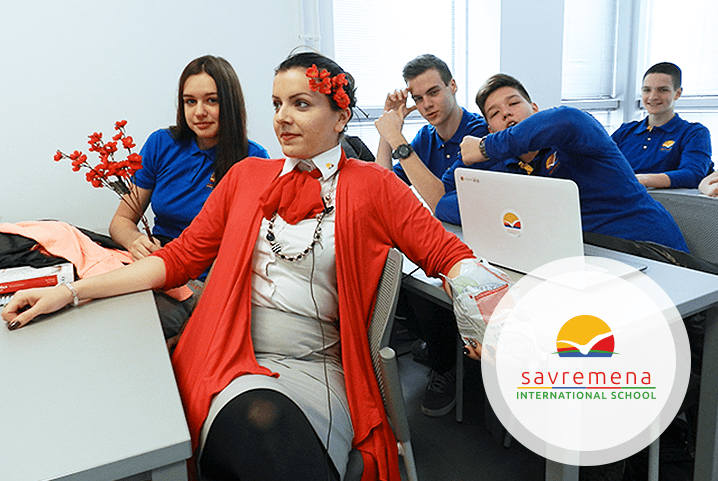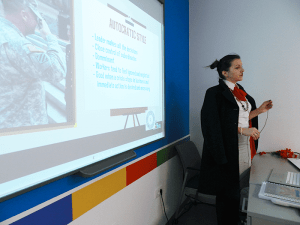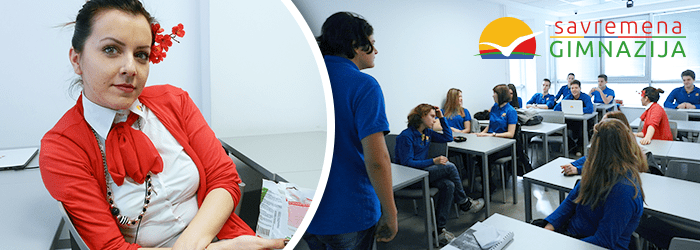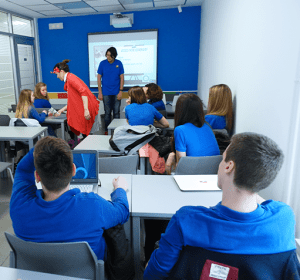
The best way to ensure that the students adopt the knowledge and not forget it the moment they receive a mark for it is to present it in an interesting way, which will inspire them to think and explore the field in question.
To present different leadership styles to the students of Savremena International School in an interesting way, the teacher Tatjana Vilček came up with an unusual Global Perspectives class where she used a little bit of make-up, garments and acting to present the difference between the autocratic, democratic and liberal leadership styles.
Shouting, frowning and issuing orders in the autocratic style
 The first role Ms Vilček jumped into was the character of an autocratic leader. To present the characteristics of such a leader, the teacher dominantly stepped into the office with a grave expression on her face and an Adolf Hitler-style moustache, and immediately started shouting.
The first role Ms Vilček jumped into was the character of an autocratic leader. To present the characteristics of such a leader, the teacher dominantly stepped into the office with a grave expression on her face and an Adolf Hitler-style moustache, and immediately started shouting.
Walking among the students, the teacher penetrated their personal space and issued orders in a raised voice. Each time they tried to say something and respond to such a leader, they were swiftly interrupted, without the possibility of finishing the sentence.
The teacher’s strictness and high-handedness on the one hand, and the students’ discontent and feeling of oppression on the other, successfully evoked dictatorship as one of the three basic leadership styles.
Involvement of all students in democratic leadership
To suit the needs of the role of a democratic leader, the teacher erased the Hitler moustache, removed the coat, and remained in the uniform familiar to the students. She lowered the tone of her voice considerably, addressing the students kindly and smilingly.
Presenting the democratic way of decision making, the teacher encouraged the students to get involved in considering the best answers to the questions posed to them. Everyone got a chance to express their opinion, and then everyone voted in order to reach a decision that would suit the wishes of the majority of participants.
Liberal-style relaxedness
Liberal style means that members of the organisation get to make their own decisions. This is why, when presenting the liberal style, the teacher sat down and relaxed, and let one of the students teach, showing him trust and giving him full freedom in presentation of the material.
As the students were trying to get used to the new form of organisation, the teacher made them laugh and distributed candies, building the general impression of a relaxed atmosphere. With flowers in her hair and a smile on her face, the teacher became merely one among the members, equally important as the students, just like participants in the laissez-faire form of leadership are.
Changes in leadership styles in company structure
Visually illustrating the characteristics of each individual leader, and interpreting their behaviour, the teacher creatively introduced the differences between the three basic leadership styles and their effect on the students. Savremena’s students could easily perceive the advantages and shortcomings of each individual form of leadership, as well as connect the concrete type of leadership with the way work unfolds in companies.
Learning about different forms of leadership, the students concluded what happens with the employees in collectives where the manager embodies one of the forms of leaderships - autocratic, democratic, or liberal.



















